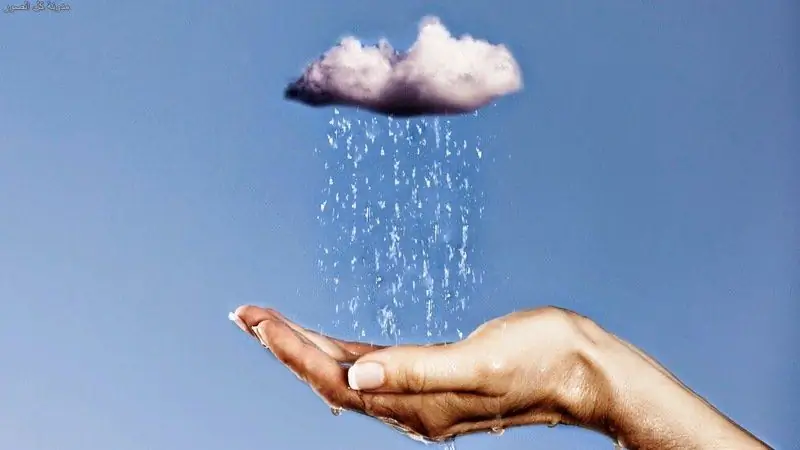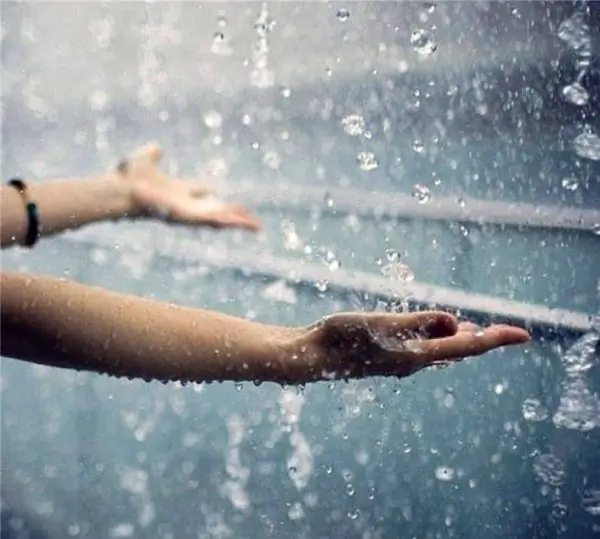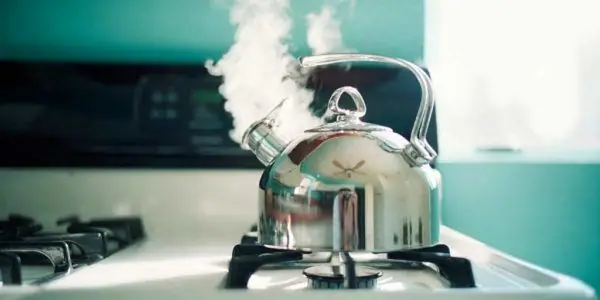
Table of contents:
- Author Bailey Albertson albertson@usefultipsdiy.com.
- Public 2023-12-17 12:53.
- Last modified 2025-01-23 12:41.
Is it possible to drink rainwater - we separate the truth from myths

Ordinary tap water is in many cases unsuitable for drinking. It needs to be filtered or boiled to get rid of harmful substances, salts and chlorine. Not everyone can afford to buy bottles of drinking water regularly. Some people advise collecting raindrops and drinking them. Will it harm your health? What are the consequences of drinking rainwater? Let's consider the situation from a scientific point of view.
Can you drink rainwater
First, let's determine how rain appears and what quality the water is in it. During formation and at the beginning of precipitation, the raindrops are pure distilled water. They are free from salts, magnesium, calcium. Rainwater is very soft, especially when compared to tap water. This water is drinkable, although the World Health Organization noted in 2011 that the lack of calcium and magnesium in distilled water can negatively affect the health of people who do not get these minerals from other sources.
Due to the prevalence of this information, the myth that the collected rainwater is clean and drinkable has become popular. However, not all so simple. When raindrops rush to the ground, they collect all sorts of chemical compounds along the way: salts of heavy metals, pesticides, particles of animal and bird excrement and other not very pleasant substances that can be found in the form of tiny particles between the cloud and the ground.
This means that even in an ecologically clean area, drinking rainwater can cause poisoning

Rainwater is nowhere near as clear when it gets to the lower atmosphere
And if you boil?
Unfortunately, boiling rainwater is not a panacea for poisoning.
The main problem here lies in the fact that without laboratory research, no one can tell you exactly the composition of the rainwater you collect. After boiling, many harmful substances lose their properties. However, such heat treatment will not in any way affect, for example, heavy metal salts. The presence of other harmful compounds in the water cannot be ruled out, which, when heated, can become even more dangerous. In fact, rainwater can contain anything from a huge amount of household and construction dust to arsenic and mercury.

Boiling rainwater will not reliably protect you from potential hazardous compounds
Scientists and doctors advise against drinking rainwater unless absolutely necessary. Otherwise, the risk of poisoning may override all the possible benefits of such a diet.
Recommended:
Hot Drink Recipes For Autumn: Ginger, Honey And Chocolate, Mulled Wine And Tea + Video

Tips for preparing hot drinks. necessary products, the sequence of preparation of mulled wine, chocolate, coffee and tea with the addition of spices
A Cat Or Cat Does Not Eat Or Drink Water For Several Days (3 Or More): Reasons For Refusing To Eat And Drink, What To Do If The Kitten Suffers

How dangerous is the refusal of food and water. What diseases can cause similar symptoms in cats? What to do if the animal does not eat or drink
Is It Possible To Drink Raw Eggs And What Is The Threat?

Can I drink raw eggs? How to do it correctly with benefit. Who shouldn't drink raw eggs
Is It Possible To Eat Eggs Every Day And What Is The Threat?

Is it okay to eat eggs every day. Daily rate for children and adults
Why A Smartphone Is Put In The Refrigerator And What Is The Threat

They put a phone in the refrigerator for 4 reasons, and this has consequences
